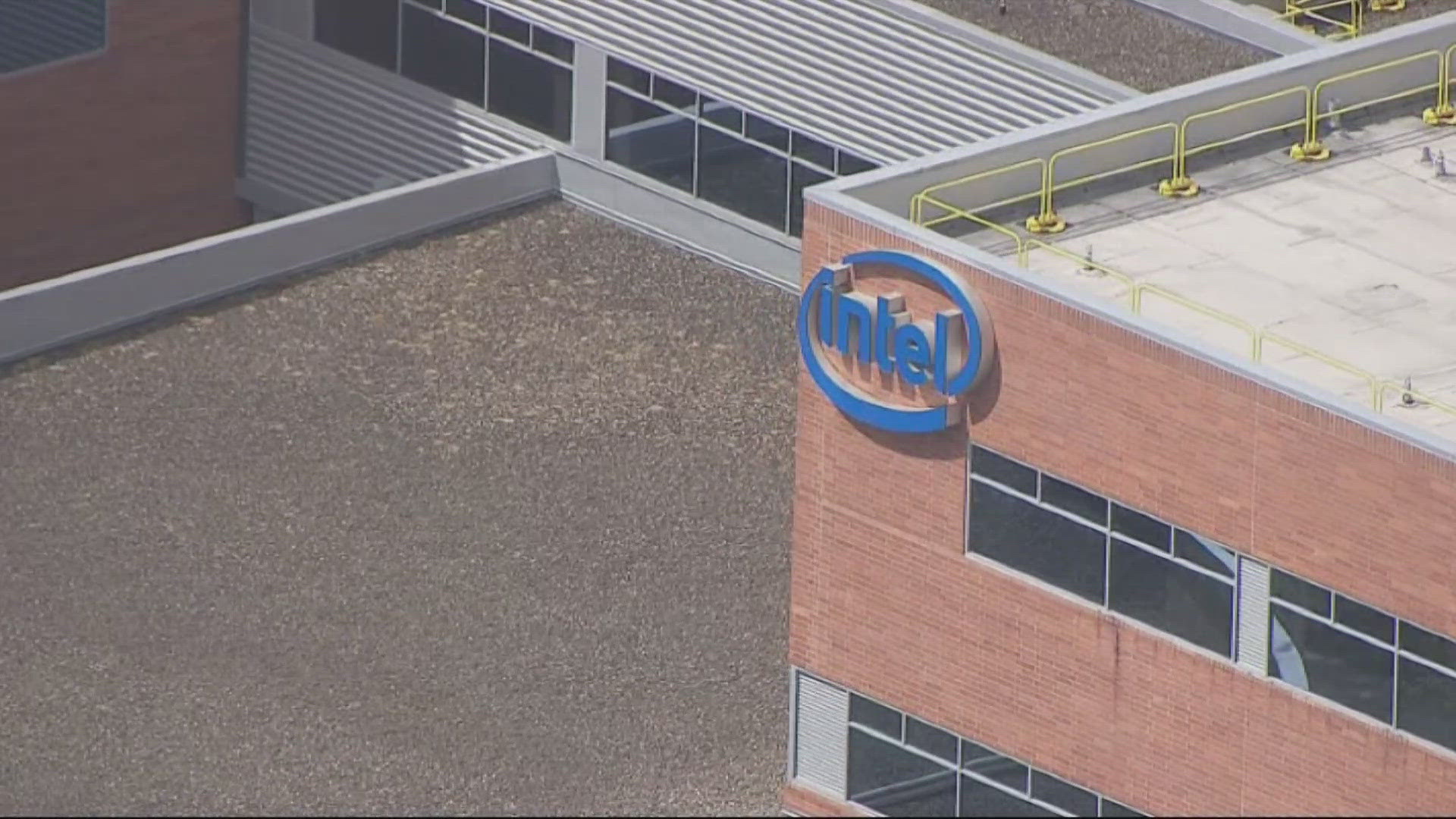HILLSBORO, Ore. — Tech giant Intel, Oregon's second-largest private employer, announced this week that it will cut 15% of its total workforce. The Oregonian reports that this could have a significant impact in the Beaver State.
In total, the company expects to cut close to 15,000 jobs. According to The Oregonian's reporting, as many as 3,000 of those lost jobs could be in Oregon, assuming cuts are distributed equally across the company workforce. Nearly half of Intel's total U.S. employment is in Oregon.
By making those cuts, CEO Pat Gelsinger said Thursday in a memo to staff, the company plans to save $10 billion in 2025.
Intel has struggled to keep up with competitors, particularly when it comes to incorporating artificial intelligence into chips. At the same time, it's been investing in expansions in Ohio, Arizona and Oregon.
The company's second quarter revenue was down 1% year over year, and the forecast for the third quarter is even worse — as much as 8%.
Oregonian tech business reporter Mike Rogoway said it appears the company felt it had "no choice" but to cut jobs.
"They're in a tough spot," Rogoway told KGW. "And no, Wall Street wouldn't take it. On a call last night with employees, the way Intel's executive explained it is that the company would just have to take on unsustainable debt to keep spending the way it has been without growing revenues. So they had to make these cuts to secure the company's future. They've dug themselves quite a hole."
Intel had its worst day on Wall Street in half a century, with share losing more than a quarter of their value. That means the stock is trading at its lowest since 2013. Intel posted a loss of $1.6 billion between April and June, down from a profit of $1.5 billion just a year earlier.
Particularly in Oregon, the Intel cuts represent a whiplash-inducing reversal of fortune. In March, the company announced a $36 billon expansion of its Hillsboro chipmaking campus. The company has been a major beneficiary of CHIPS and Science Act funding from the Biden administration, pulling in $8.5 billion in direct funding and $11 billion in loans for chip manufacturing plants around the country.
In all, Intel estimated at the time that its expansion projects in Oregon, Arizona, New Mexico and Ohio would create over 10,000 manufacturing jobs and nearly 20,000 construction jobs. Intel could stand to lose some amount of CHIPS Act funding if it fails to meet certain milestones in the expansion.
Intel is unique among its main rivals in that it manufactures chips instead of just designing them.
The Associated Press contributed to this report.

